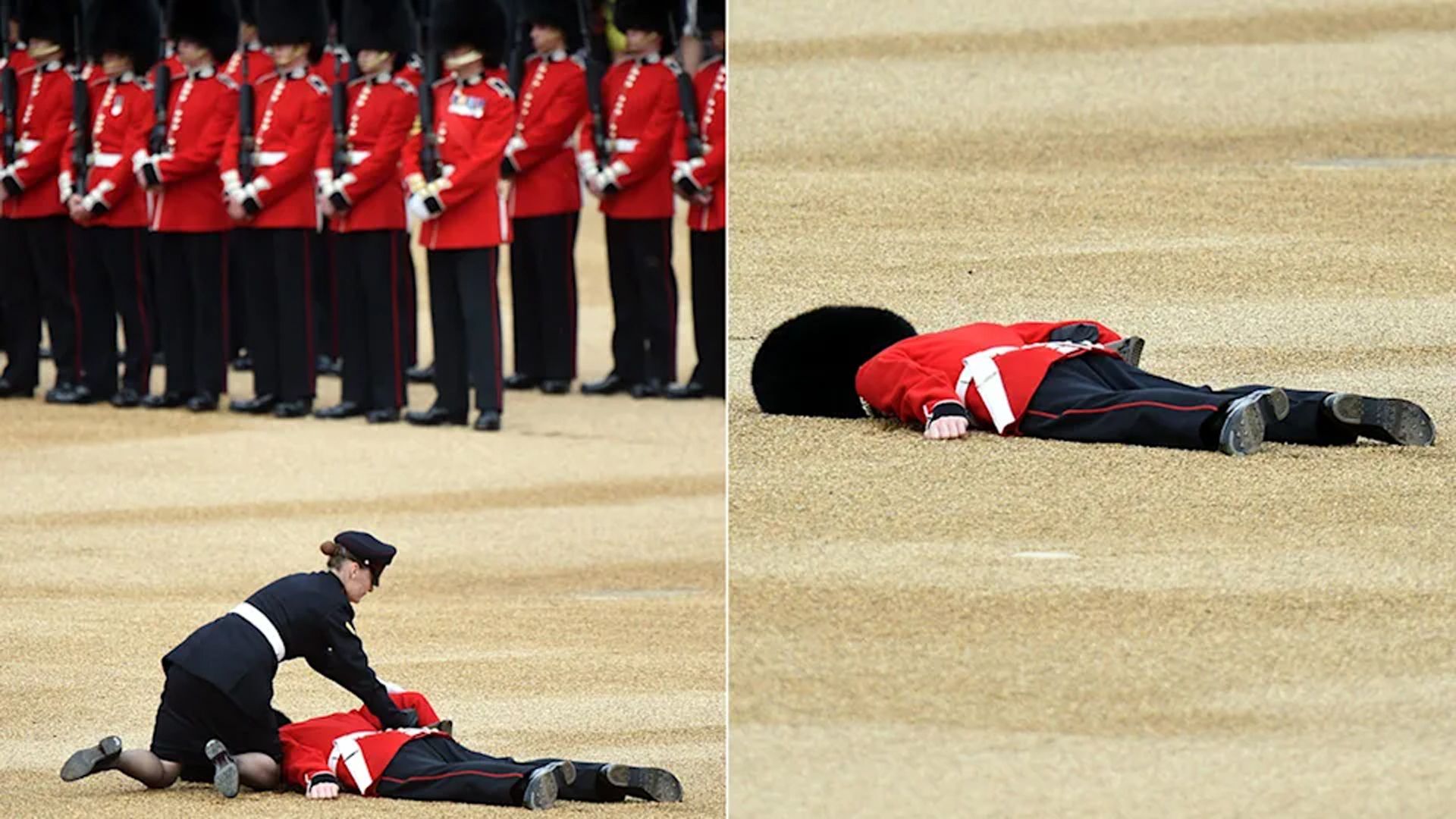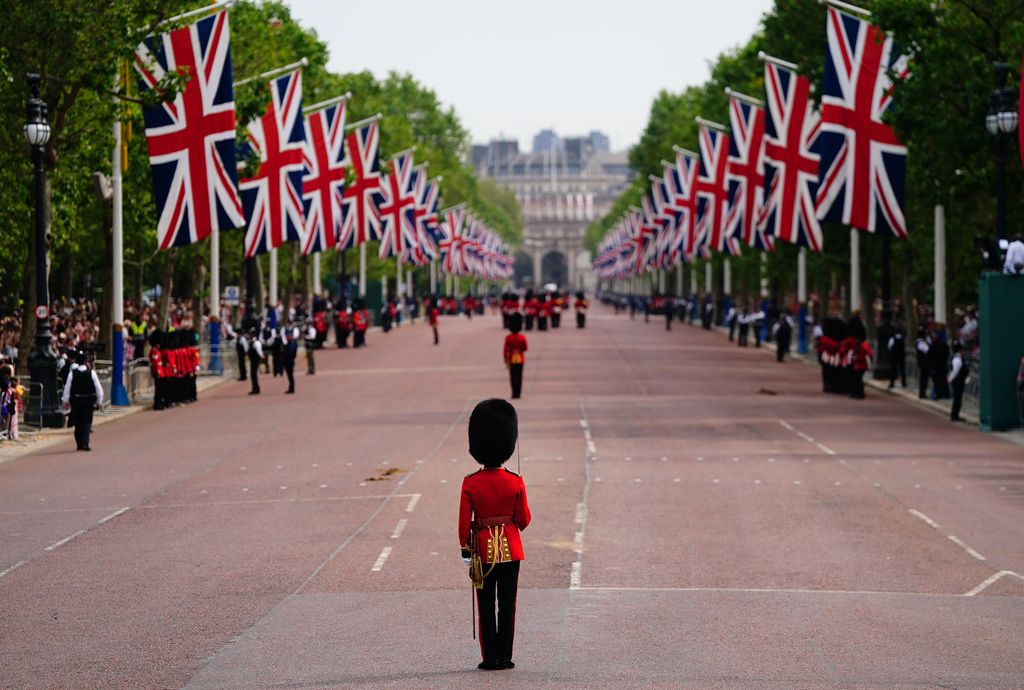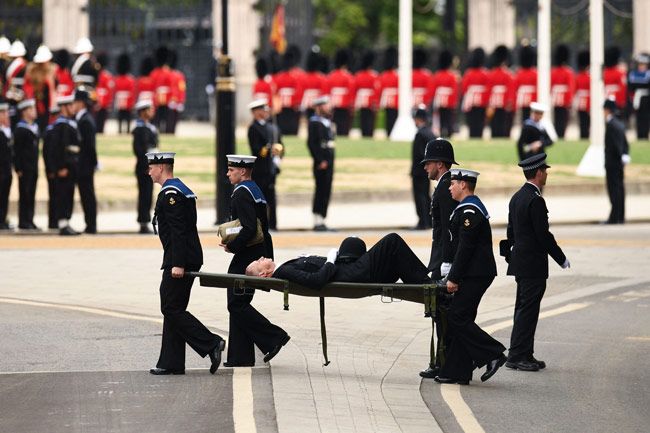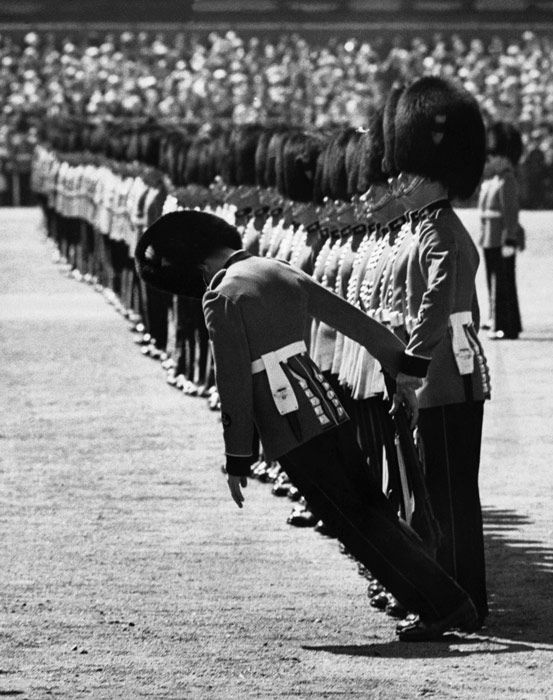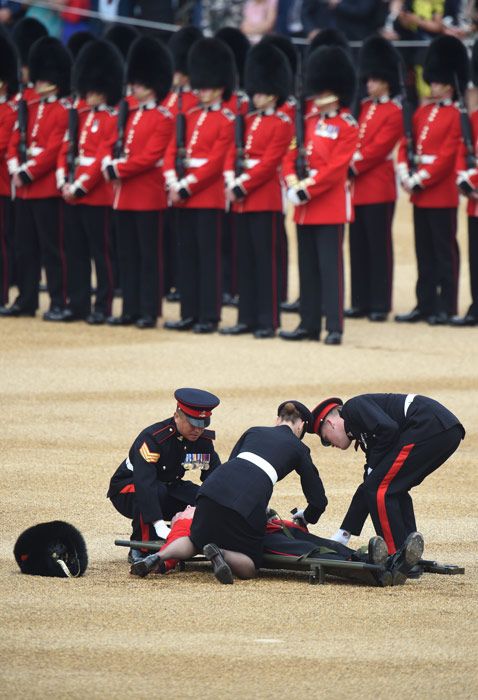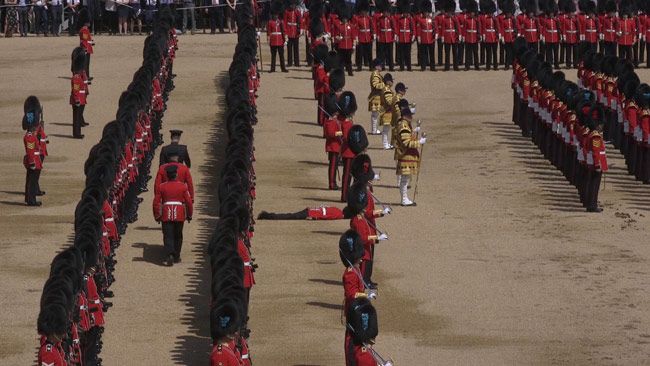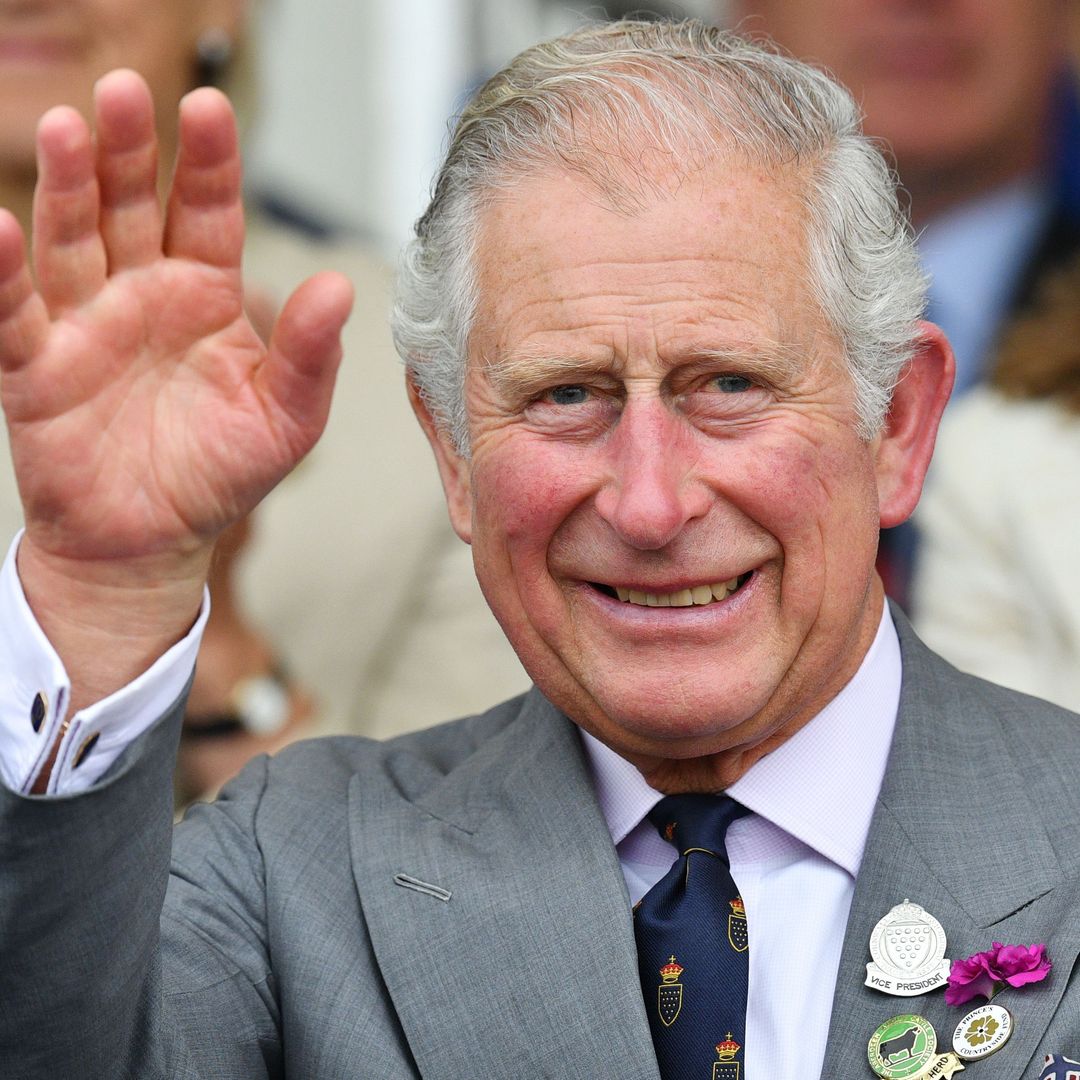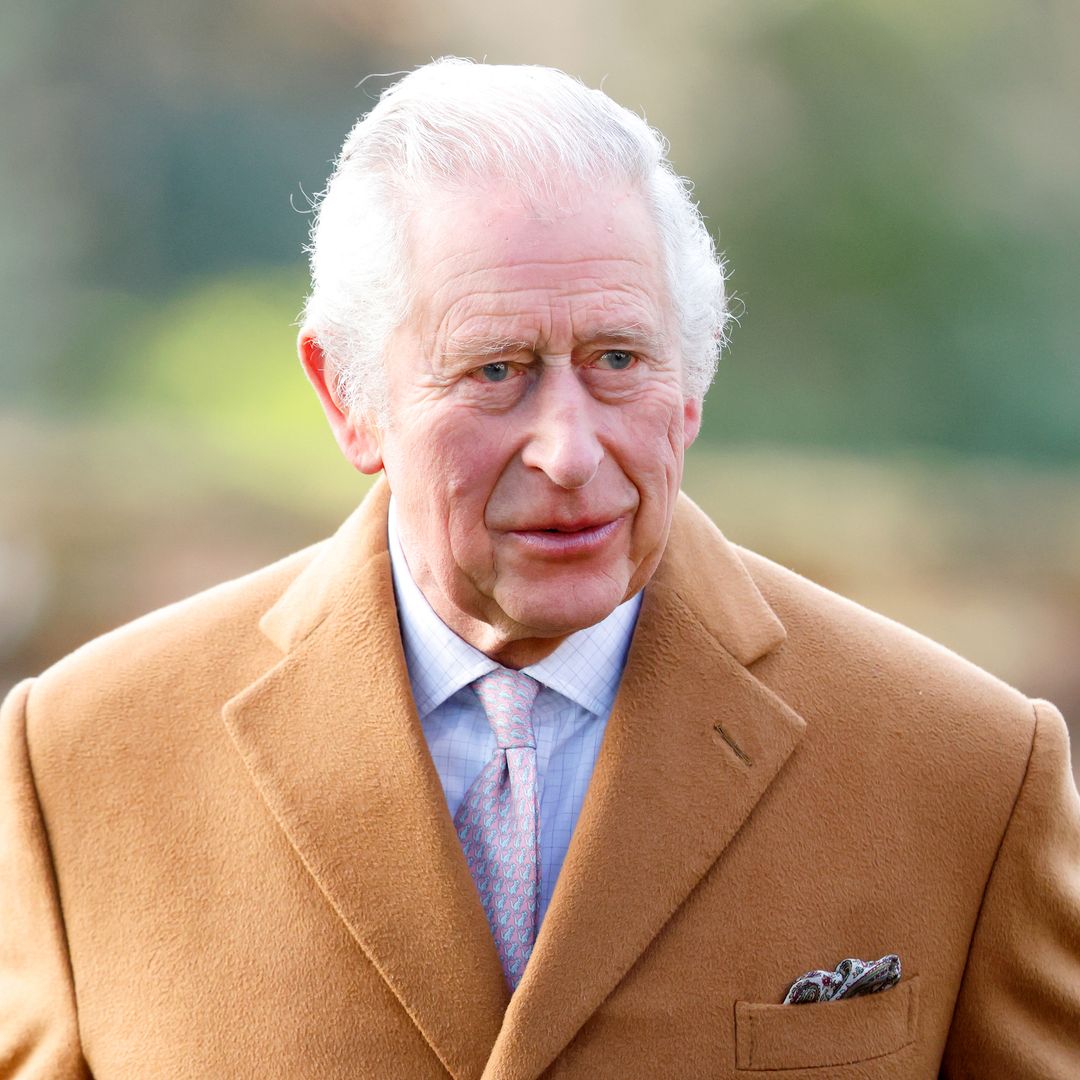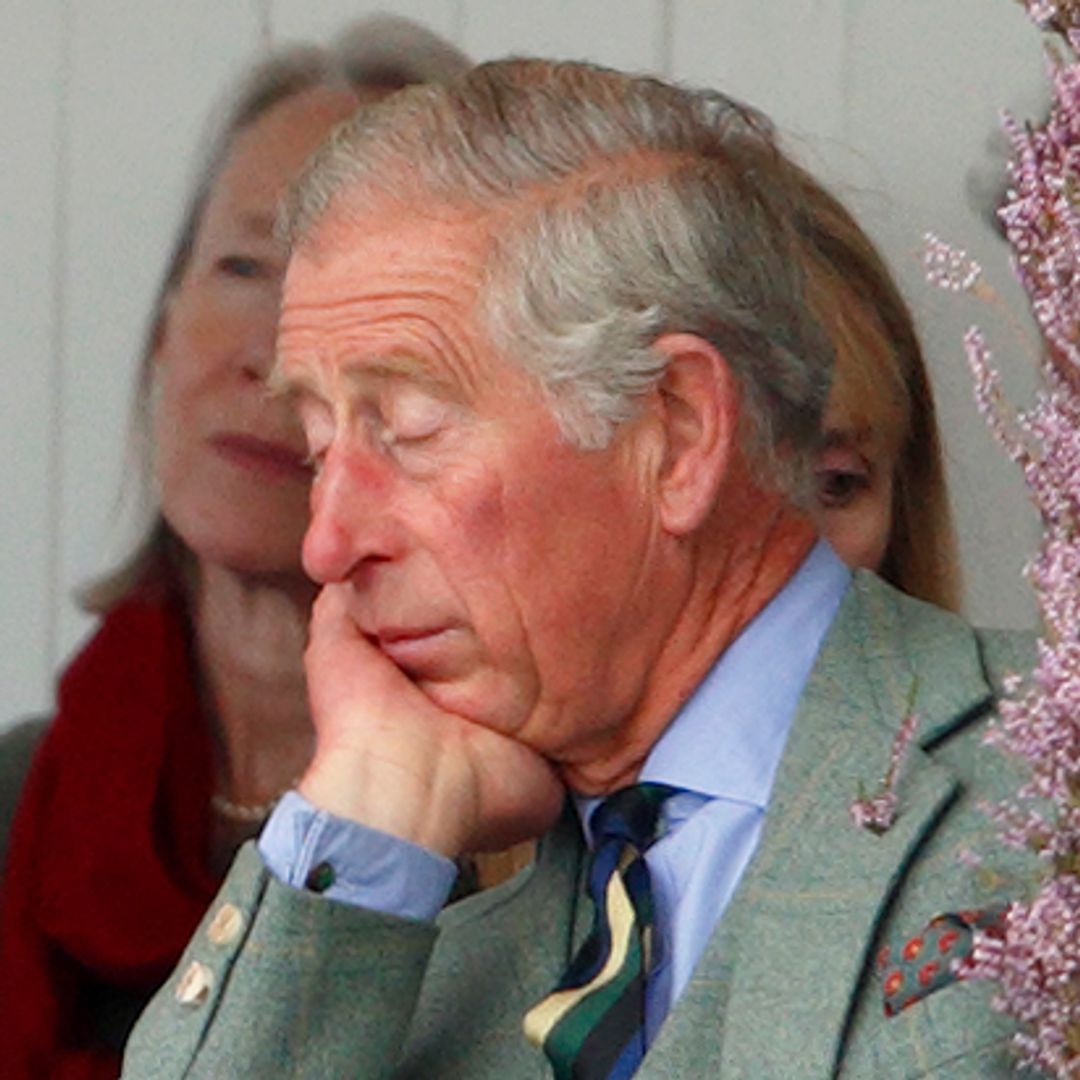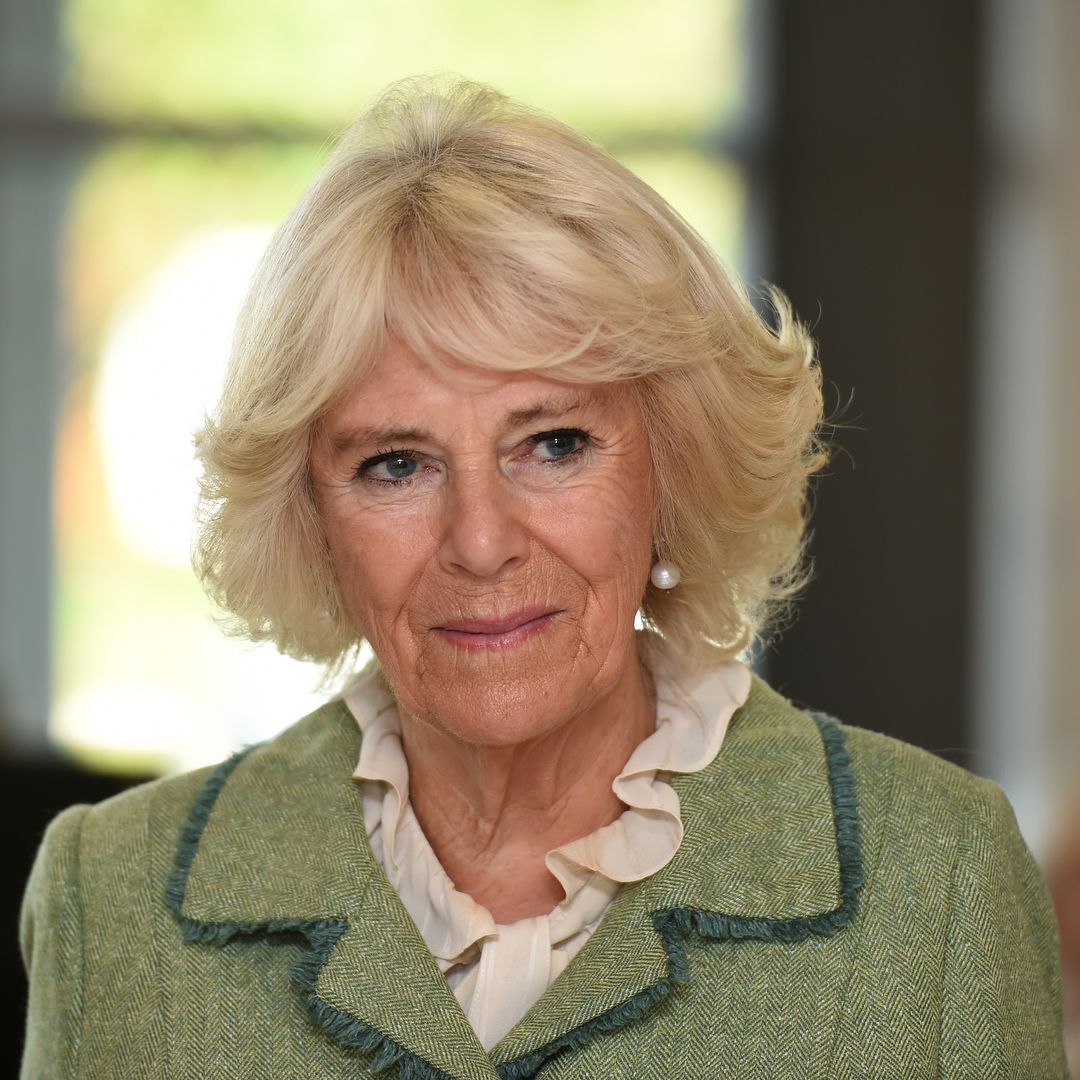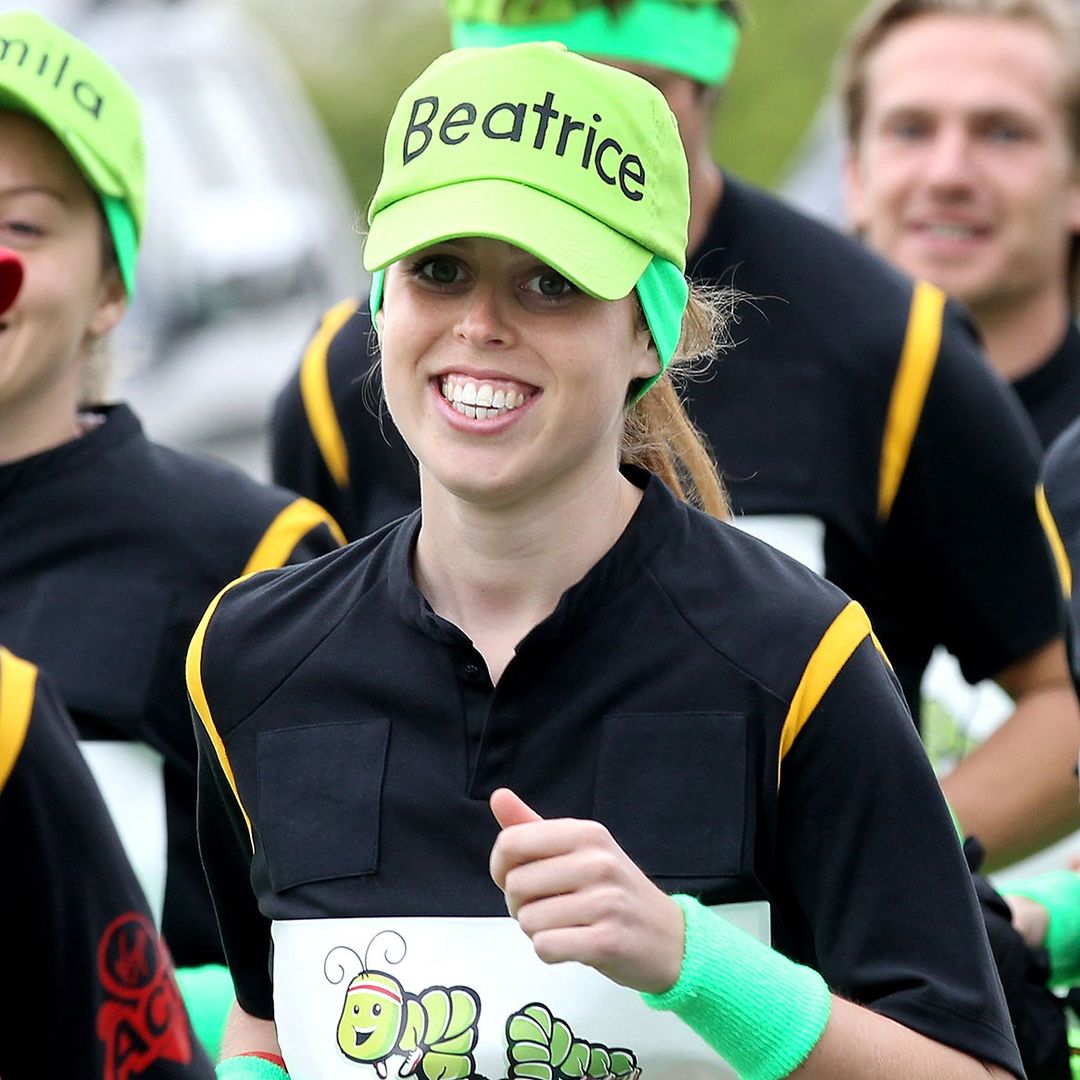Ahead of King Charles' historic Trooping the Colour celebrations on Saturday 17 June, service personnel were seen practising their formations to accompany the monarch on his horseback procession. The soldiers, dressed in their red and white uniforms, have become synonymous with British pageantry and serve a crucial purpose in guarding the royal family's residences.
Last week, at least three guardsmen fainted during the Trooping the Colour rehearsal at Horse Guards Parade as temperatures rose to almost 30C. The soldiers were whisked away on stretchers, while one managed to get up and resume the rehearsals. Prince William even acknowledged the difficult conditions in a tweet, writing: "A big thank you to every solider who took part in the Colonel’s Review this morning in the heat. Difficult conditions but you all did a really good job. Thank you. W." But this isn't the first time royal guards have fainted...
Last year, the late Queen's Guards made headlines when a policeman collapsed outside Westminster Abbey, with photographs showing the officer being carried away on a stretcher just before Her Majesty's state funeral. The incident came just after the BBC was forced to suspend a live broadcast of Queen Elizabeth II's lying in state at Westminster Hall after one of the royal guards protecting Her Majesty's coffin suddenly collapsed. Take a look at the moment in the clip below...
Soldiers in ceremonial uniform were maintaining a constant, 24-hour vigil around the Queen’s coffin at Westminster Hall. While the soldiers were permitted to rotate position every 20 minutes, they were ordered to stand completely still around the four corners of the coffin for six hours a shift.
READ: King Charles rides on horseback at Trooping the Colour - best photos as he's joined by the Prince and Princess of Wale s
The guard was standing at the foot of the late monarch's casket when he lost consciousness. Footage of the guard's sudden collapse, which happened around 1am, quickly circulated on social media. Viewers were left increasingly concerned for the Queen's guard, who was immediately attended to by nearby officials before the livestream was suspended.
"Poor thing, I hope he's not hurt. That was a nasty fall," a TikTok user expressed their concern at the time, as another wrote: "It must be overwhelming. This is one of the biggest events in the world."
"I hope he's alright," added another. "It must be so tough to stay like that for a long time."
Why do royal guards faint?
Surprisingly, fainting is not an uncommon occurrence for the King's guards, particularly at large scale events like Trooping the Colour which require them to stand still for extended periods of time.
In fact, the soldiers are even taught to "faint to attention", says Major Dai Bevan, who led the 101-strong Guard of Honour from the Welsh Guards at the Prince and Princess of Wales' wedding.
The royal guards are prone to fainting when ordered to stand for long shifts
Soldiers are taught to avoid toppling sideways or clinging to nearby infrastructure for support. According to The Express, true discipline is displayed by those soldiers who can topple forward face first while still holding their bayonet-tipped rifles.
A royal guard collapsed at Trooping the Colour in 2016
"It will probably involve a broken nose and a whole lot of missing teeth," adds Major Dai Bevan.
The responsibility of guarding the Sovereign by the Household Troops (as they were known at the time) dates back to the time of Henry VII (1485 - 1509).
As some of the best soldiers in the British Army, the King's guardsmen have fought in virtually every major area of conflict with great distinction since the 17th Century. They require impeccable discipline and years of training to become one of the royal guardsmen.
The Queen's guards are taught to "faint to attention"
It may look easy, but standing perfectly still for elongated periods of time can put immense strain on the body and mind, causing exhaustion, muscle strain, lower back pain and swelling of the feet. Not to mention the weight of their uniform, environmental conditions and pressure to fulfil their duties.
DISCOVER: Prince Louis' cheeky antics at Trooping the Colour with siblings George and Charlotte
